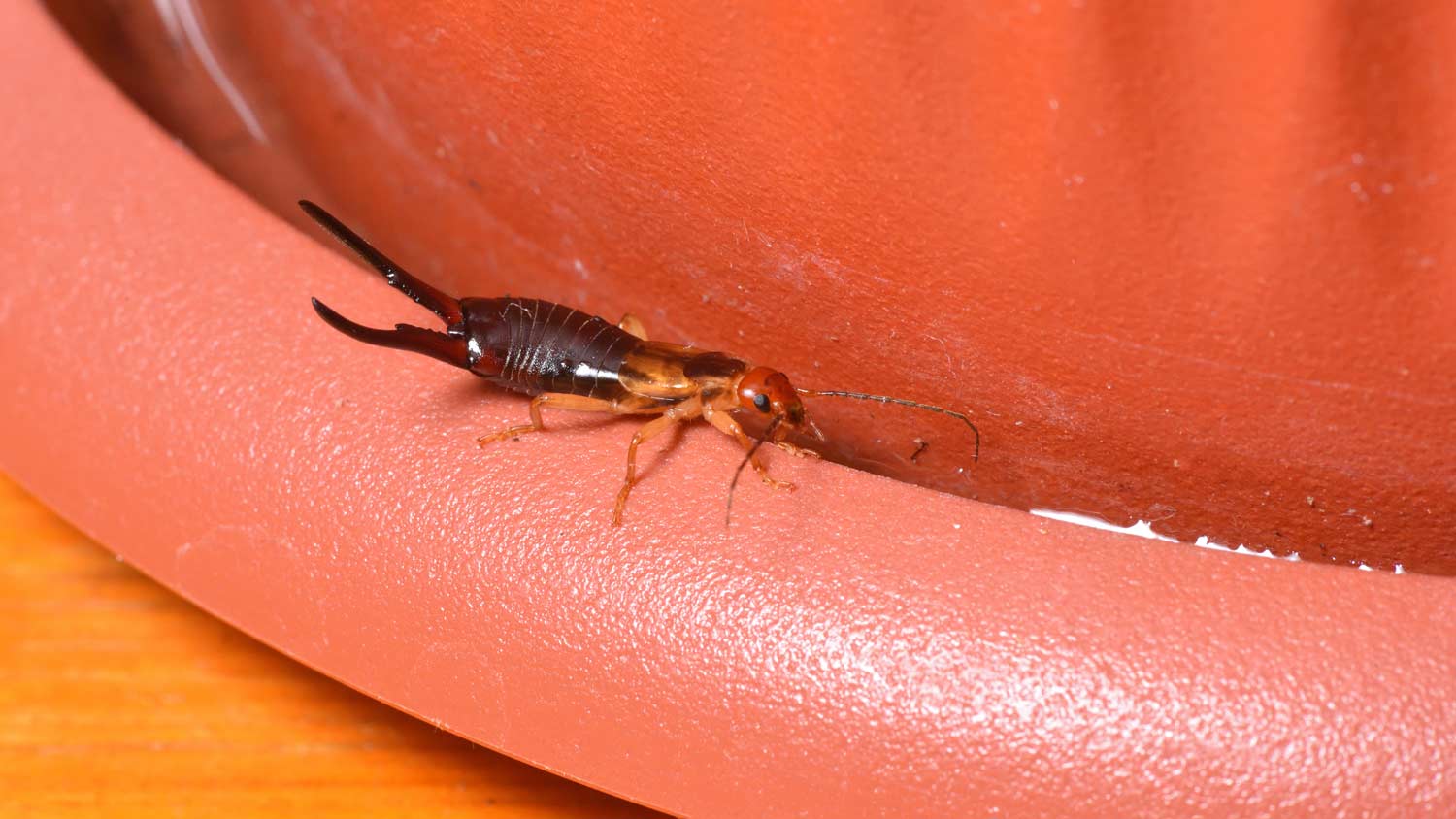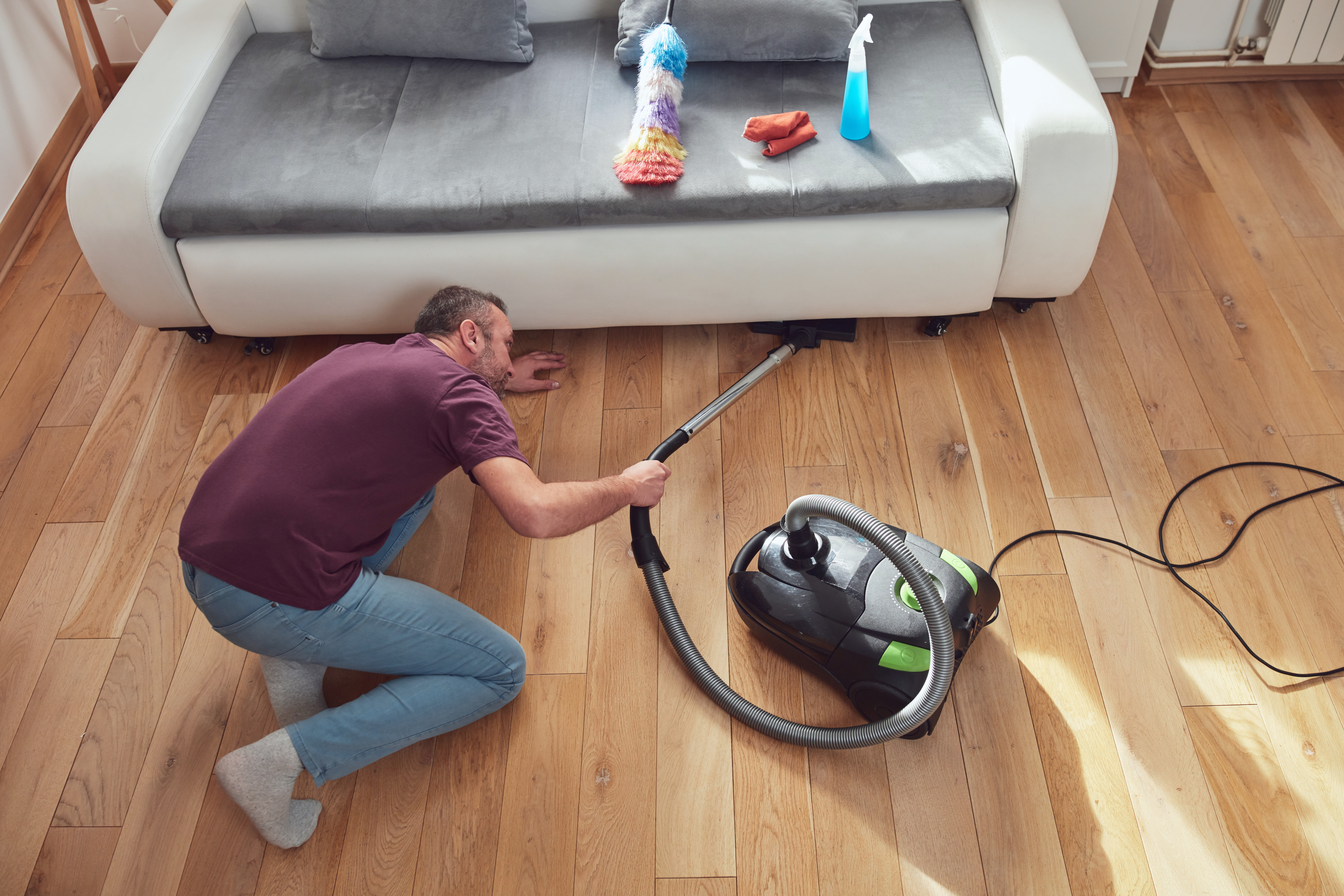
Snake removal cost comes down to the type and number of snakes you’re dealing with and where they’re located inside your home. This guide breaks it down.
Damp hideouts and cozy corners are like a five-star hotel for earwigs


Earwigs seek out moist, dark environments, so they seek shelter inside when their outdoor home is compromised.
Earwigs can enter homes through foundation cracks and gaps.
Earwigs feed on decaying plant material and insects.
Reducing food sources and moisture are key to deterring earwigs from moving in.
Earwigs might look intimidating, but they're harmless to humans. Still, their presence can be unsettling, especially if they've taken up residence in your home. If you've noticed these nocturnal insects scurrying around, you're likely wondering why earwigs are hiding in your home. Let’s review when to hire a pest control company and how to prevent future invasions.
Earwigs are primarily outdoor insects, but they’re drawn inside when conditions are right. They don’t set up long-term colonies indoors, but they will wander inside if their usual environment becomes inhospitable or your home seems inviting.
Earwigs rely on damp environments to survive since they can dry out quickly in arid conditions. They thrive in areas with high humidity and decaying organic matter, like mulch beds, flower pots, and garden debris.
Once inside, they tend to inhabit basements, bathrooms, laundry rooms, and under-sink cabinets. Even something as simple as a damp towel left on the floor or water pooling around a leaky pipe can attract them.
Earwigs are nocturnal and light-averse, so during the day, they seek out cool, dark, and undisturbed places to hide. They don’t need much space—just a dark crevice or a moist pile of paper or cardboard is enough. The more clutter you have in low-traffic areas, the more likely they are to infest your home.
Outdoors, earwigs munch on flowers, leaves, seedlings, and even other insects. Inside, they may nibble on crumbs, garbage, moldy bread, or houseplants. They aren’t attracted to food in the same way that roaches or ants are, but an overflowing compost bin or poorly sealed pantry item can still pique their interest. Anything decaying or soft is fair game.
Heavy rains, flooding, drought, or extreme heat can make an earwig's usual habitat inhospitable. In these instances, they may migrate toward more stable environments like your home, particularly if you have moist soil or dense vegetation against the foundation.

Earwigs are small, flat-bodied insects, which makes it easy for them to slip indoors through tiny openings. You might unknowingly invite them in through:
Cracks and gaps in the foundation or siding
Unsealed windows and doors
Openings around plumbing, HVAC vents, or cable lines
Items brought inside from the yard, like potted plants, newspapers, boxes, or laundry
Once inside, they tend to stay near the entry point unless they find moisture and food deeper in your home. They’re more active at night, so you might not notice them during the day unless you’re disturbing their hiding spots.
The best thing you can do to remove earwigs from your home is to get rid of the damp, dark spots and clean up clutter inside and around your home’s foundation to keep them from wandering in. These measures will create an inhospitable environment, prompting them to move on, and ward off future infestations.
If you’re still seeing a lot of earwigs, or if they’re popping up during the day, you may have a heavier infestation. It might be time to bring in a local pest control company to conduct an inspection of your home and surrounding areas to suggest a permanent removal method.
From average costs to expert advice, get all the answers you need to get your job done.

Snake removal cost comes down to the type and number of snakes you’re dealing with and where they’re located inside your home. This guide breaks it down.

When calculating the cost of hiring a flea exterminator, consider your home size and the infestation extent. This guide will help you figure out what to budget.

Termite damage repair costs can vary greatly based on the damage severity and location. Learn more about the associated costs of this project with our guide.

There's no one simple trick for getting rid of fleas in your house. But when you come at them from all angles, it's easy to send fleas packing for good.

Wondering how to kill stink bugs—and keep them away, for good? Read on for a DIY guide on how to get rid of stink bugs.

There are many types of mites that may infest your home. Learn how to get rid of mites and tips for preventing them from returning.